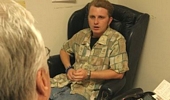|
|
 Acne (1,500) Acne (1,500)
 Addictions (1,500) Addictions (1,500)
 Advice (1,500) Advice (1,500)
 Allergies (1,092) Allergies (1,092)
 Alternative Medicine (1,500) Alternative Medicine (1,500)
 Anti Aging (1,500) Anti Aging (1,500)
 Breakup (1,500) Breakup (1,500)
 Cancer (1,499) Cancer (1,499)
 Dental Care (1,500) Dental Care (1,500)
 Disabilities (1,500) Disabilities (1,500)
 Divorce (1,500) Divorce (1,500)
 Elderly Care (1,498) Elderly Care (1,498)
 Goal Setting (1,500) Goal Setting (1,500)
 Hair Loss (1,500) Hair Loss (1,500)
 Health and Safety (1,497) Health and Safety (1,497)
 Hearing (1,500) Hearing (1,500)
 Law of Attraction (1,499) Law of Attraction (1,499)
 Marriage (1,500) Marriage (1,500)
 Medicine (1,497) Medicine (1,497)
 Meditation (1,499) Meditation (1,499)
 Men's Health (1,500) Men's Health (1,500)
 Mental Health (1,500) Mental Health (1,500)
 Motivational (1,500) Motivational (1,500)
 Nutrition (1,495) Nutrition (1,495)
 Personal Injury (1,499) Personal Injury (1,499)
 Plastic Surgeries (1,500) Plastic Surgeries (1,500)
 Pregnancy (1,496) Pregnancy (1,496)
 Psychology (1,500) Psychology (1,500)
 Public Speaking (1,500) Public Speaking (1,500)
 Quit Smoking (1,500) Quit Smoking (1,500)
 Religion (1,499) Religion (1,499)
 Self Help (1,500) Self Help (1,500)
 Skin Care (1,500) Skin Care (1,500)
 Sleep (1,500) Sleep (1,500)
 Stress Management (1,500) Stress Management (1,500)
 Teenagers (1,492) Teenagers (1,492)
 Time Management (1,500) Time Management (1,500)
 Weddings (1,500) Weddings (1,500)
 Wellness (1,500) Wellness (1,500)
 Women's Health (1,500) Women's Health (1,500)
 Women's Issues (1,500) Women's Issues (1,500)
|
"Chips," as it is called, stands for a Child in Need of Help or Protection. It is codified under Minnesota Statutes Chapter 260C. It identifies cases where the state's social services office becomes involved in family matters where allegations exist related to juvenile delinquency, truancy, child neglect or child abuse. Who may file?A Chips Petition may be filed by the County Social Services office or it may be filed privately by any person having knowledge of a child in the state of Minnesota that appears to be in need of protection or services or neglected. Once filed, the social services department is charged with conducting an investigation and making a determination as to whether the allegations of the complaint are substantiated or whether they are not substantiated. The stated goal of a CHiPS Petition is to make:
- "reasonable efforts "to reunite the child with the child's parents or guardians in a home that is safe and permanent; and
- if the placement with the parents is not reasonably foreseeable, to secure for the child a safe an permanent placement, preferably with adoptive parents or a fit and willing relative through the transfer of permanent legal and physical custody
What is a "reasonable effort" often is a significant point of controversy. All too often the investigation conducted is limited and may entail little more than an inquiry with the charging party. Based on that limited information, a serious and, potentially, long lasting decision may be made to take action. That action may be administrative and involve offering parents or guardians alternatives to improve conditions from counseling to social worker intervention in the home. A child that may be deemed in need or protective services may include claims that the child is:
- is abandoned or without parent, guardian, or custodian;
(2)
- (i) has been a victim of physical or sexual abuse, (ii) resides with or has resided with a
victim of domestic child abuse as defined in subdivision 5, (iii) resides with or would reside with a perpetrator of domestic child abuse or child abuse as defined in subdivision 5, or (iv) is a victim of emotional maltreatment as defined in subdivision 8;
- is without necessary food, clothing, shelter, education, or other required care for the child's physical or mental health or morals because the child's parent, guardian, or custodian is unable or unwilling to provide that care;
- is without the special care made necessary by a physical, mental, or emotional condition because the child's parent, guardian, or custodian is unable or unwilling to provide that care, including a child in voluntary placement due solely to the child's developmental disability or emotional disturbance;
- is medically neglected, which includes, but is not limited to, the withholding of medically indicated treatment from a disabled infant with a life-threatening condition. The term "withholding of medically indicated treatment" means the failure to respond to the infant's life-threatening conditions by providing treatment, including appropriate nutrition, hydration, and medication which, in the treating physician's or physicians' reasonable medical judgment, will be most likely to be effective in ameliorating or correcting all conditions, except that the term does not include the failure to provide treatment other than appropriate nutrition, hydration, or medication to an infant when, in the treating physician's or physicians' reasonable medical judgment:
- the infant is chronically and irreversibly comatose;
- the provision of the treatment would merely prolong dying, not be effective in ameliorating or correcting all of the infant's life-threatening conditions, or otherwise be futile in terms of the survival of the infant; or
- the provision of the treatment would be virtually futile in terms of the survival of the infant and the treatment itself under the circumstances would be inhumane;
- is one whose parent, guardian, or other custodian for good cause desires to be relieved of the child's care and custody, including a child in placement according to voluntary release by the parent under section ?type=s&num=260C.212&year=2006#stat..8" 260C.212, subdivision 8 ;
- has been placed for adoption or care in violation of law;
- is without proper parental care because of the emotional, mental, or physical disability, or state of immaturity of the child's parent, guardian, or other custodian;
- is one whose behavior, condition, or environment is such as to be injurious or dangerous to the child or others. An injurious or dangerous environment may include, but is not limited to, the exposure of a child to criminal activity in the child's home;
- is experiencing growth delays, which may be referred to as failure to thrive, that have been diagnosed by a physician and are due to parental neglect;
- has engaged in prostitution as defined in section ?type=s&num=609.321&year=2006#stat..9" 609.321, subdivision 9 ;
- has committed a delinquent act or a juvenile petty offense before becoming ten years old;
- is a runaway;
- is a habitual truant; or
- has been found incompetent to proceed or has been found not guilty by reason of mental illness or mental deficiency in connection with a delinquency proceeding, a certification under section ?type=s&num=260B.125&year=2006" 260B.125 , an extended jurisdiction juvenile prosecution, or a proceeding involving a juvenile petty offense.
Once child protection is involved, they may require a psychological or physical examination of any family members involved in the investigation. At a hearing, the minor or the minor's parent's or guardian may present evidence material to the case and to cross examine any witnesses.
|
|
|



